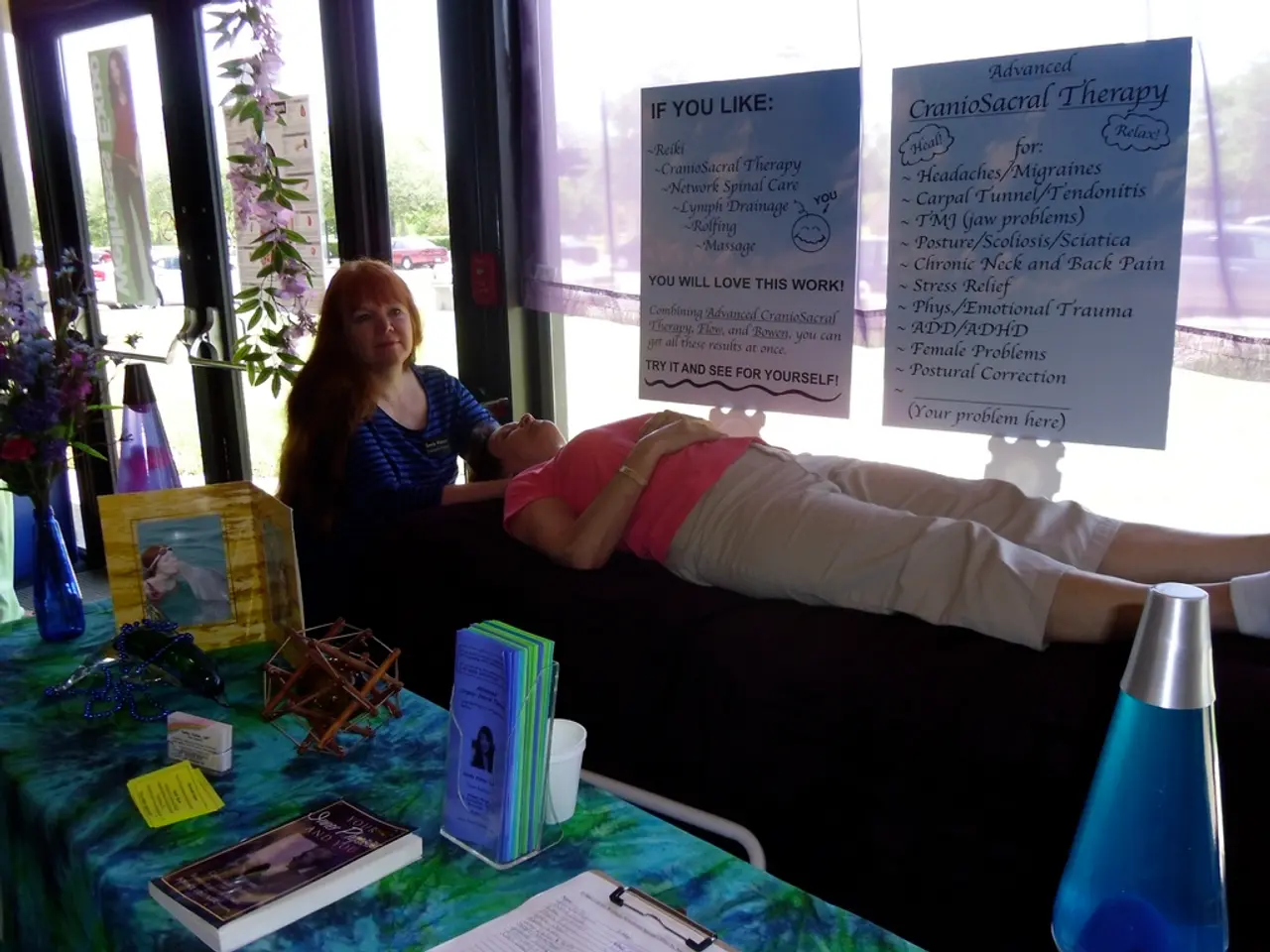Exploring the Debate: Anxiety - Treatment or Management?
Anxiety does not have to limit one's well-being with the right treatment. A combination of therapy, lifestyle changes, and medication can help control and reduce symptoms, improving quality of life [1][3][5].
Cognitive-behavioral therapy (CBT) and Acceptance and Commitment Therapy (ACT) are highly effective in reducing anxiety symptoms by changing thought patterns and improving coping skills [1][3][5]. These therapies do not guarantee a permanent cure for everyone, but they can significantly improve the management of anxiety.
Medications, such as selective serotonin reuptake inhibitors (SSRIs) and serotonin-norepinephrine reuptake inhibitors (SNRIs), help regulate brain chemistry and control symptoms [1][4][5]. However, they usually require ongoing management and can take weeks to work fully.
Benzodiazepines, such as alprazolam or clonazepam, may be used in specific cases for anxiety treatment, but they have a dependence potential [1].
Lifestyle modifications—regular exercise, dietary changes, stress-reducing techniques, and support groups—also significantly contribute to managing anxiety effectively [2]. These approaches focus on symptom control rather than a full cure.
A balanced diet is important in managing anxiety, as avoiding caffeine and alcohol can help [1]. Regular physical exercise releases endorphins and reduces cortisol (the stress hormone), helping anxiety disappear [1].
Emotional regulation strategies such as breathing, cognitive restructuring, or mindfulness can be effectively used to manage anxiety when it is controlled [1]. Conscious breathing, body scan, observation of thoughts, and full care in daily activities are effective mindfulness exercises for anxiety [1].
Socialization and emotional support can be key to controlling anxiety [1]. Less avoidance of situations that previously generated anxiety occurs when anxiety is controlled [1]. The ability to respond to unexpected challenges or situations without anxiety could indicate that anxiety has been controlled [1].
Identifying and changing irrational thoughts or catastrophic thoughts is a part of CBT [1]. Controlled exposure to situations that generate fear is a part of CBT [1].
It's important to note that anxiety disorders can be controlled effectively but not cured [1]. Manageable symptoms of anxiety do not significantly interfere with daily life when it is controlled [1]. Absence of clinical symptoms like worry, panic attacks, constant tension, or irrational fear could indicate that anxiety has been controlled [1].
However, it is generally not considered that anxiety can be completely cured in all cases; rather, it is primarily managed and controlled through the methods mentioned above [1]. Regular follow-up with healthcare providers is essential to adapt treatment plans and maintain long-term control [1][2][4][5].
Another factor to consider is that lack of sleep increases emotional reactivity and anxiety [2]. Therefore, ensuring good sleep hygiene is an important part of managing anxiety.
In summary, anxiety is best viewed as a manageable condition where symptoms can be significantly reduced and functioning improved through a personalized combination of psychotherapy, medication, lifestyle changes, and emotional support. Regular follow-up with healthcare providers is essential to adapt treatment plans and maintain long-term control.
[1] National Institute of Mental Health. (2021). Anxiety Disorders. https://www.nimh.nih.gov/health/topics/anxiety-disorders/index.shtml [2] American Psychological Association. (2021). Stress in America. https://www.apa.org/topics/stress [3] National Health Service. (2021). Anxiety. https://www.nhs.uk/mental-health/conditions/anxiety/ [4] Mayo Clinic. (2021). Anxiety disorders: Symptoms and causes. https://www.mayoclinic.org/diseases-conditions/anxiety/symptoms-causes/syc-20373465 [5] Anxiety and Depression Association of America. (2021). Understanding Anxiety. https://adaa.org/understanding-anxiety
- A mindfulness exercise like conscious breathing or body scan could be useful in managing anxiety once it has been controlled.
- Lifestyle changes, such as regular exercise, a balanced diet, good sleep hygiene, and stress-reducing techniques, can significantly contribute to controlling anxiety.
- In the field of clinical psychology, both Cognitive-behavioral therapy (CBT) and Acceptance and Commitment Therapy (ACT) are highly effective in improving the management of anxiety by altering thought patterns and enhancing coping skills.
- Psychology research and mental health science have proven that anxiety, while not being completely curable in all cases, can be effectively controlled through a combination of treatment strategies, including therapy, medication, lifestyle changes, and emotional support.




